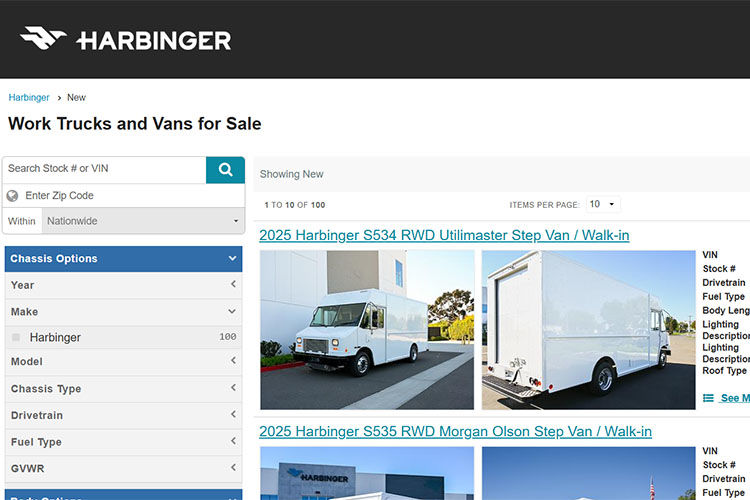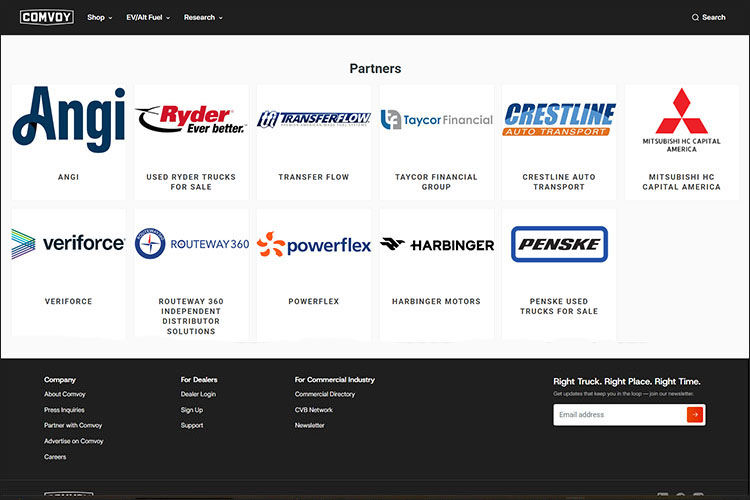Fuel-Efficient Fleet Strategies: Cut Fuel Costs & Boost MPG 2025


Fuel-Efficient Fleet Strategies: Cut Fuel Costs & Boost MPG 2025
Fuel-Efficient Fleet Strategies: Cutting Costs & Boosting MPG in 2025
Fuel prices might fluctuate, but one thing stays the same: inefficiency drains your bottom line. For fleet managers juggling rising operating expenses, tightening emissions rules, and supply chain expectations, fuel efficiency is a mission-critical strategy. Whether you manage 10 trucks or 10,000, this is the year to prioritize smarter driving, better tech, and more fuel-efficient fleets.
The True Cost of Fleet Fuel Inefficiency
Fuel is one of the largest recurring costs in fleet operations, but there’s more hidden beneath the surface.
Average Fleet Fuel Expenses and Their Impact on Operating Margins
According to recent studies, fuel accounts for nearly 35% of total fleet operating expenses.1 When diesel or gas prices spike, even a slight dip in MPG across dozens of vehicles can mean thousands lost each month. Poor fuel economy eats into margins and puts pressure on pricing, logistics, and long-term growth.
Hidden Costs: Maintenance, Downtime, and Environmental Penalties
Beyond fuel prices, inefficient fleets suffer more frequent wear and tear. Worn tires, overworked engines, and stop-and-go driving patterns lead to higher maintenance costs and unexpected breakdowns. Regulatory noncompliance adds yet another layer, with emissions-related fines becoming more common in states pushing low-emission mandates.
Top Strategies to Reduce Fleet Fuel Costs
Want to reduce fuel waste? It starts with smart systems and smarter habits. Here are some of the strategies that can help you reduce your fleet fuel consumption:
1. Implementing GPS Fleet Tracking for Real-Time Route Optimization
Modern GPS tools do more than get you from A to B. They track traffic, road conditions, idle time, and detours in real time. Route optimization helps reduce unnecessary mileage, boosts on-time performance, and cuts fuel consumption significantly.
2. Regular Vehicle Maintenance: Tire Pressure, Oil Changes, and Diagnostics
A well-maintained fleet is a fuel-efficient fleet. Underinflated tires alone can reduce fuel economy by up to 3%. Routine maintenance, such as engine diagnostics, oil and filter changes, and alignment checks, helps improve fuel efficiency and keeps trucks road-ready. Better upkeep also helps prevent fuel waste from unnoticed leaks or faulty injectors.
3. Adopting Fuel-Efficient Driving Habits: Speed Management and Reducing Idle Time
Driving 5 mph over the 60 mph speed limit can drop MPG by up to 7%. Teach drivers to manage speed, avoid sudden acceleration, and reduce idling during pickups or downtime. Even simple behavior changes like easing into starts can dramatically improve overall fleet fuel usage.
Leveraging Technology for Fuel Savings
Maximizing fleet fuel savings starts with smart vehicle choices—but it’s sustained through effective management, accurate tracking, and continuous improvement.
Utilizing Telematics Systems to Monitor and Improve Driver Behavior
Telematics tools provide real-time feedback on driving behavior, flagging issues like hard braking, excessive idling, and unnecessary detours. They help improve driver safety, cut fuel usage, and support coaching efforts with performance data. The result? More MPG, fewer risks.
The Role of Fuel Management Software in Tracking Consumption Patterns
Fuel management software allows fleet managers to track and analyze consumption trends across all vehicles. These systems integrate with fuel card data, GPS, and telematics to pinpoint inefficiencies and identify the vehicles or drivers burning the most fuel. The most fuel-efficient cargo vans combined with telematics can save your fleet thousands of dollars per year.
Predictive Maintenance: Using AI to Foresee and Prevent Fuel-Related Issues
AI-based predictive maintenance tools flag early warning signs before they become costly failures. These systems track patterns across engines, sensors, and fuel systems, helping prevent fuel system issues that reduce efficiency or cause breakdowns. Predictive tools also help optimize service intervals, which keeps trucks in better shape longer.
Investing in Fuel-Efficient Vehicles and Alternatives
Reducing fleet fuel costs often starts with smarter driving and better software—but the biggest impact usually comes from upgrading your vehicles. Whether you're exploring EVs, hybrids, retrofits, or alternative fuels, today’s market offers more ways than ever to improve efficiency. Here's how to evaluate the right investment for long-term savings.
Evaluating Hybrid and Electric Vehicles for Long-Term Savings
EV commercial trucks and hybrid vehicles reduce emissions and fuel costs. While initial investment may be higher, lower fuel consumption and fewer moving parts make them an attractive long-term option. Explore electric commercial vehicles to see if your routes align with EV range and depot charging.
Retrofitting Existing Vehicles with Aerodynamic Enhancements
You don’t have to buy new to improve fuel efficiency. Solutions like cab roof fairings, side skirts, and wheel covers reduce drag, improve aerodynamics, and increase fuel economy. Learn more about retrofitting existing vehicles to boost savings without replacing your fleet.
Exploring Alternative Fuels: CNG, Biodiesel, and Their Benefits
For fleets not ready to go electric, exploring alternative fuel like compressed natural gas (CNG), propane, or biodiesel offers a lower-emission middle ground. These fuels often qualify for tax incentives and reduce reliance on volatile gas prices. Be sure to review the essential considerations for alternative fuels before making the switch.
Building a Fuel-Efficient Fleet Culture
Sustained fuel savings don’t just come from new vehicles or high-efficiency engines—they come from the habits and decisions of your team. From driver behavior to maintenance practices, fleet culture plays a crucial role in long-term fuel efficiency. When everyone is aligned around the goal of reducing fuel use, even small changes can lead to big cost savings over time.
Training Programs to Instill Fuel-Saving Habits Among Drivers
Drivers are the backbone of every fleet, and small habits lead to big fuel changes. Regular training programs around safe, efficient driving techniques—such as coasting, using cruise control, and reducing idle time—can help reduce fuel use without slowing delivery times.
Incentive Structures to Reward Fuel-Efficient Driving
Incentivizing MPG performance creates real results. Consider driver reward programs tied to telematics data. Offering monthly bonuses, recognition, or team-based competitions can boost morale while improving efficiency.
Regular Performance Reviews and Feedback Loops
Transparency is key. Regular performance reports help drivers track their fuel efficiency, understand how they compare to benchmarks, and see where improvements are needed. These feedback loops drive accountability and reward consistent performance.
Build a Smarter, More Fuel-Efficient Fleet with Comvoy
From adopting telematics to exploring alternative fuel vehicles, every decision you make impacts your bottom line. Building a fuel-efficient fleet doesn’t happen overnight, but with smarter tools, better data, and a culture of accountability, you can reduce fleet fuel costs, increase fuel efficiency, and create lasting fleet fuel savings.
Ready to take the next step? Our unbiased, nationwide listings offer commercial vehicles from the most fuel-efficient semi trucks to everyday pickup trucks. Comvoy will help you find the right truck, in the right place, at the right time.
Sources:
- Roma Fuels. The Significance of Fuel Management When Running a Fleet. https://romafuels.com/the-significance-of-fuel-management-when-running-a-fleet/
- Continentals. Fuel efficiency: How tire maintenance influences fuel consumption. https://www.continental-tires.com/products/b2c/tire-knowledge/fuel-efficiency/#:~:text=Tire%20Pressure%20&%20Fuel%20Efficiency,even%20wear%20and%20fuel%20efficiency
- University Fleet Management. Want more miles per gallon from your car or truck?. https://fleet.unl.edu/fuel-saving-tips/
 About the author: Candy McCollum, Sr. Business Development Manager at Work Truck Solutions, has over 20 years of experience in the automotive industry, specializing in commercial fleet vehicles.
About the author: Candy McCollum, Sr. Business Development Manager at Work Truck Solutions, has over 20 years of experience in the automotive industry, specializing in commercial fleet vehicles.
She focuses on developing strategic partnerships and fostering connections among end-users, fleets, partners, dealerships, upfitters, and manufacturers. Candy is passionate about driving innovation and improving knowledge sharing within the work truck landscape; her contributions have been recognized across various platforms, helping to shape this dynamic ecosystem.
 Driving Business Growth Through Financial Flexibility: How You Buy Your Truck Matters
Driving Business Growth Through Financial Flexibility: How You Buy Your Truck Matters The Comvoy 2026 Event Calendar: We’ll See You There
The Comvoy 2026 Event Calendar: We’ll See You There Wheel Safety Is Your Business: How to Protect Your Fleet and Your Bottom Line
Wheel Safety Is Your Business: How to Protect Your Fleet and Your Bottom Line Harbinger Electric Step Vans and Cab Chassis Vehicles Now Available on Comvoy
Harbinger Electric Step Vans and Cab Chassis Vehicles Now Available on Comvoy Comvoy’s Partner Network: Your Shortcut to Smarter Fleet Solutions
Comvoy’s Partner Network: Your Shortcut to Smarter Fleet Solutions







